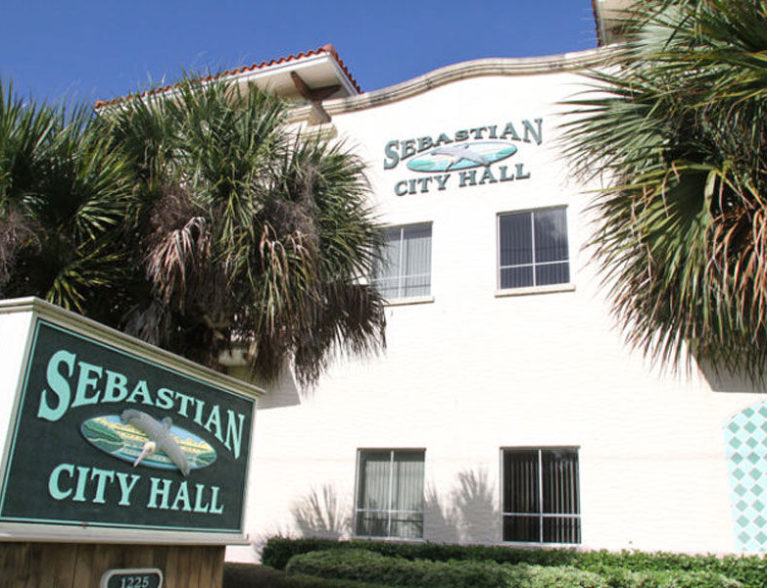
SEBASTIAN — After an impassioned exhortation by Fr. David Newhart, Rector of St. Elizabeth’s Episcopal Church, the Sebastian City Council saw the light and, at the 11th hour, revised its decision on the section of the city code relating to temporary use permits, which would have prevented churches in residential areas from holding special events outdoors, on their property.
“You have hamstrung a community asset. You have sequestered us inside, like bad children,” Newhart told Council, listing the many community projects and services his church provides, from sponsoring a Boy Scout Troop, to providing school supplies, to blessing pet hamsters.
“We are not there to intrude, but to help. We want to be good neighbors. Our neighbors enjoy our events. Without these fundraisers, we wouldn’t be able to help. Please be the public servants you’re meant to be. Please reassess and re-evaluate” your decision.
After months of arguing, protesting, pleading and pondering, Council, at its Jan. 14 meeting, voted to adopt Resolution R-14-30, updating the requirements for holding flea markets and other special events outdoors on private property in Sebastian, to the satisfaction of most, and the continuing concern of some, principally the churches located in residential areas.
The contentious issue had initially been brought before the Planning and Zoning Board by City Staff, who had found it increasingly challenging and time consuming to apply the code, which hadn’t been updated in two decades, to a rapidly growing number of permit applications, mostly for flea markets, which several churches and civic organizations have begun to hold on a regular basis, throughout the year.
After two heated, full-house P&Z meetings but no decision, City staff brought a proposed ordinance to the City Council: but a satisfactory resolution remained elusive and, at its Dec. 10 meeting, Council deferred the second reading to Jan. 14, at which time the ordinance passed, 4-1.
Ironically, Vice-Mayor Jerome Adams had cast the dissenting vote, expressing the same basic concerns as Newhart: the seven churches in residential areas, including his church, would not be able to hold even small fundraisers, such as bake sales. Although Adams said the ordinance needed more work, the vote had proceeded and passed.
City Manager Joe Griffin described the task of crafting a satisfactory ordinance as “daunting.” The updates would have to be fair to the business community, protecting local merchants from unfair competition by transient merchants, who come to town, sell their merchandise and leave, often with no recourse in the event of problems with the products, and without having to abide by the same requirements as local businesses. The code would also need to be fair to churches and local non-profit organizations, protecting their rights as property owners. After meeting with representatives of the business community and St. Sebastian Catholic Church, which operates the largest local flea market, Griffin put together Ordinance O-14-06.
After listening intently to Newhart, Council member Andrea Coy was quick to respond, “I apologize! You are absolutely right! I’ve changed my mind and I want to bring it back on the next agenda.”
Mayor Richard Gillmor agreed, saying that the purpose of the changes was never to prevent churches from holding fundraisers, but to provide control over big sales events with tents, traffic disruption and out-of-town merchants and vendors. Council member Bob McPartlan agreed, but suggested that, rather than go back, yet again, for a re-do and another vote, requests from churches in residential neighborhoods could be considered at the City Manager’s discretion. Coy said that was a lot to put on the City Manager and that the tweak should be specifically in the code, in writing.
The re-worked code will come back to the Council at its next meeting.
The updated section of the code covers transient merchants and special events with the exception of circuses and sales of motor and recreational vehicles.
Key update points:
- No more than six events per year per host site
- May include multiple similar events on one application
- Allowed only on improved lots, in commercial and public service-zoned, non-residential areas (churches in residential neighborhoods will now be the exception)
- No food concessions or food trucks unless provided by host site
- No alcohol sales, unless host site holds a current alcohol license
- $200 for initial event and City Manager will determine fees for subsequent events, and a $200 cash bond may be required.



